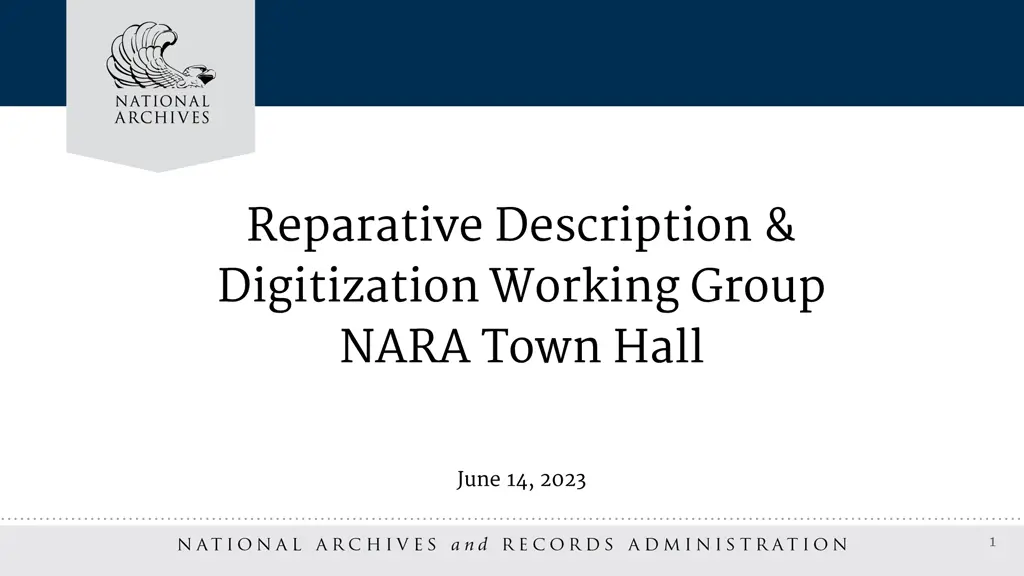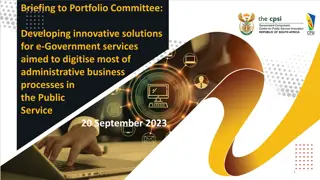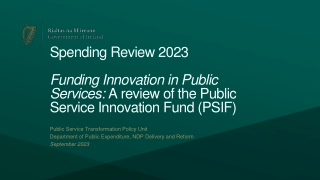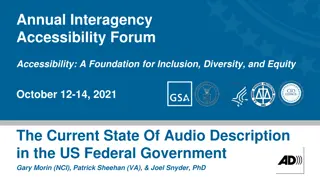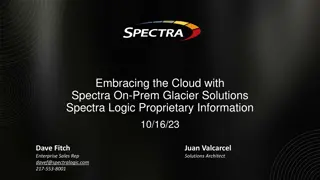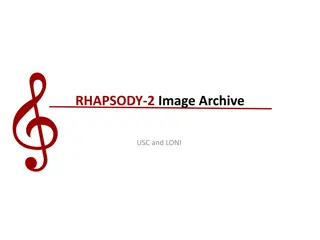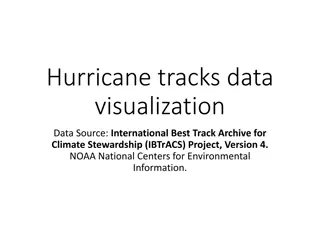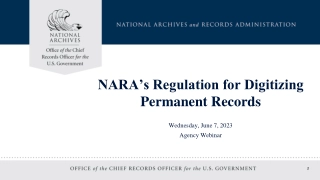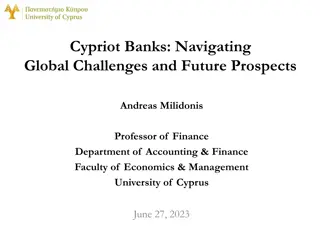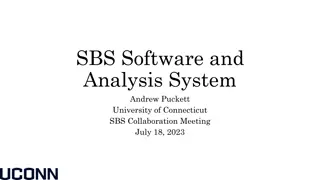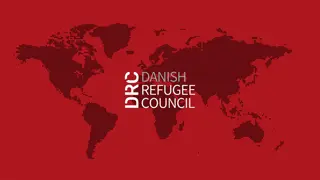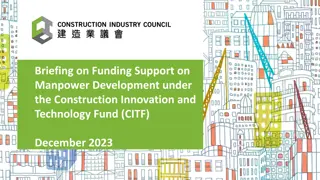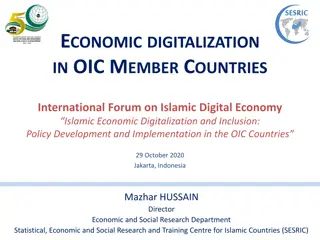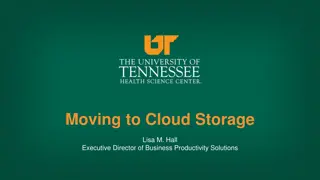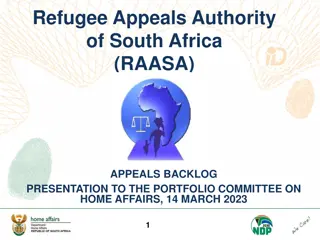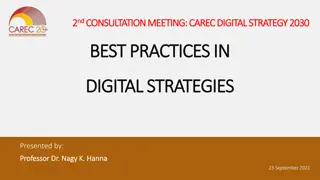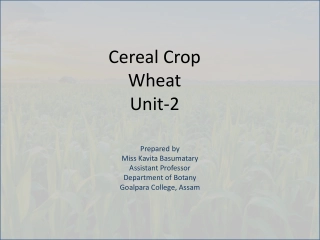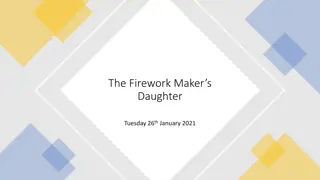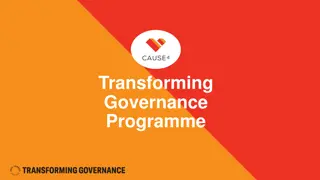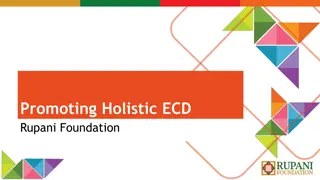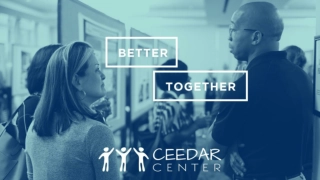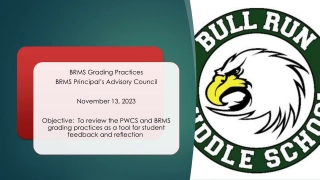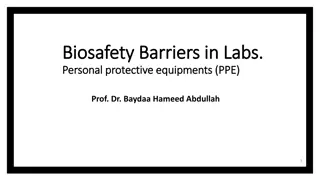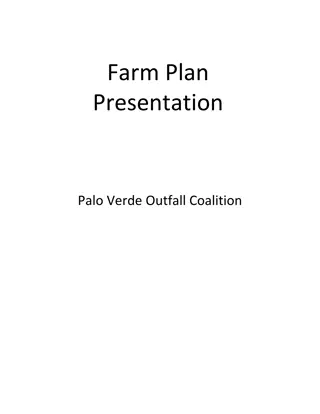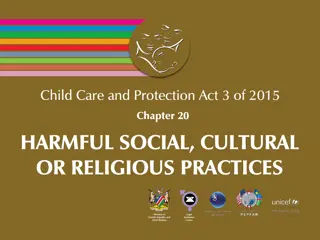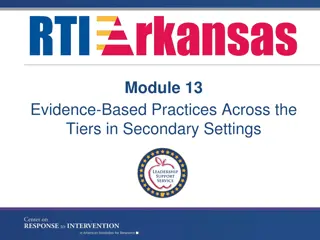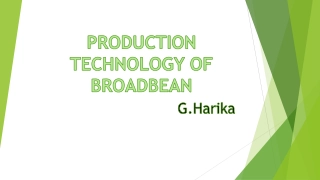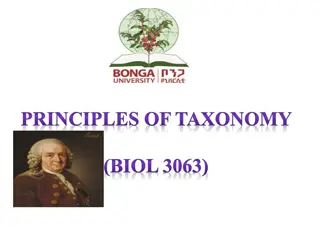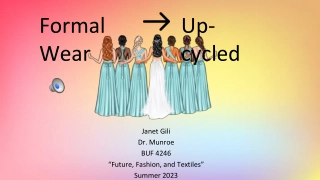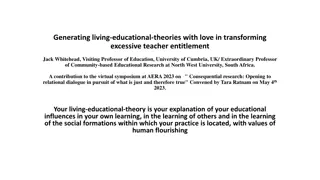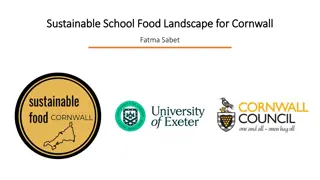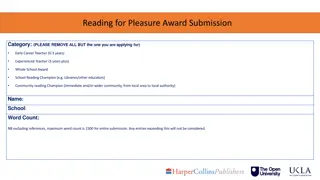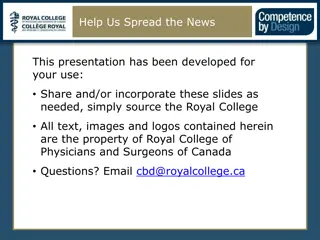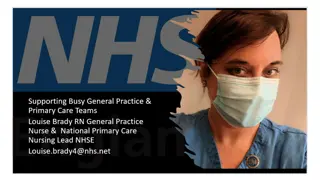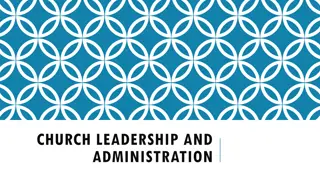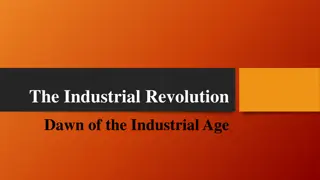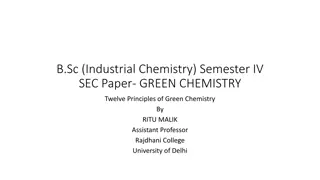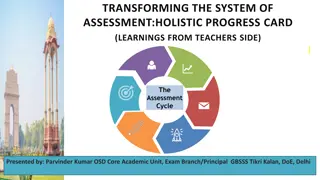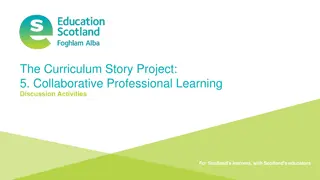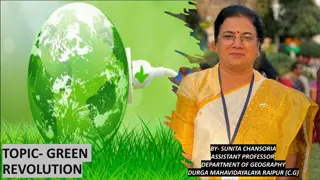Reparative Description & Digitization: Transforming Archive Practices
Join the NARA's Town Hall on June 14, 2023, featuring leaders in reparative description and digitization from NARA, Library of Congress, and more. Learn about innovative approaches and initiatives towards rectifying past errors in archival practices. Explore the commitment to respecting Indigenous peoples and their cultures. Stay informed and engaged in the evolving landscape of archival work.
Download Presentation

Please find below an Image/Link to download the presentation.
The content on the website is provided AS IS for your information and personal use only. It may not be sold, licensed, or shared on other websites without obtaining consent from the author. Download presentation by click this link. If you encounter any issues during the download, it is possible that the publisher has removed the file from their server.
E N D
Presentation Transcript
Reparative Description & Digitization Working Group NARA Town Hall June 14, 2023 1
Welcome 2
Agenda Welcome, Pamela Wright Opening Remarks, Acting Archivist of the United States Debra Steidel Wall Reparative Description and Digitization Working Group, Daniel Rooney Library of Congress: Heidy Policy, Cataloging Policy Specialist, Policy, Training, and Cooperative Programs (PTCP) Division, Library of Congress. Judith Cannan, Chief of PTCP, and Kate Zwaard, Library of Congress. University of Puerto Rico: Professor Mila Aponte Gonzalez Questions and Answers Closing 3
Reparative Description and Digitization Working Group Daniel Rooney Special Media Records Division Director, Reparative Description and Digitization Working Group Co-Chair 5
NARA Reparative Description and Digitization Working Group (RDDWG) Pam Wright, Chief Innovation Officer, RDDWG Chair Dan Rooney, RDDWG Co-Chair Audrey Amidon, Moving Image Sound Preservation Labs (AFGE 260 Representative) Hannah Bergman, General Counsel Rose Buchanan, Archives I Reference Branch David Castillo, Archives 2 Reference, Research Rooms, and Augmented Processing Branch (AFGE 260 Representative) Stacey Chandler, John F. Kennedy Presidential Library and Museum Billy Glasco, Jimmy Carter Presidential Library and Museum Gwen Granados, Archival Operations-Riverside Shalyn Lewis, General Counsel Alfie Paul, Archival Operations-Boston Ben Petersen, Digital Partnerships and Outreach Division Meg Phillips, Communications and Marketing Division Jill Reilly, Digital Engagement Division Katie Seitz, Archives I Reference Branch Cody White, Archival Operations-Denver Jay Wyatt, Center for Legislative Archives 6
Update from the Library of Congress Nicole Saylor, Director, American Folklife Center 8
The Library of Congress recognizes that many of its subject headings for Indigenous peoples living within the United States and bordering countries are either incorrect or offensive. The Library is committed to rectifying these errors and is determined to do it correctly with respect for Indigenous peoples, their customs, culture, and languages. Library of Congress Evaluation of Headings for Indigenous Peoples Library of Congress official communication https://www.loc.gov/aba/cataloging/subject/Evaluation-Headings-Indigenous-Peoples.pdf 9
Challenges and ripple effects Example: Proposed change from Iroquois Indians to Haudenosaunee (North American people) Requires change to three broader terms: Indians of North America $z Canada, Eastern Indians of North America $z East (U.S.) Iroquoian Indians Requires decision to introduce new LCSH qualifier: (North American people) 10
Progress and future plans 18
While hiring the dedicated staff member and creating the Indigenous Headings Consultants Group, the Library will continue to accept new and changed Library of Congress Subject Heading proposals related to Indigenous peoples and tribal names, as long as the proposals clearly document consultation with the tribal communities affected. Library of Congress Evaluation of Headings for Indigenous Peoples Library of Congress official communication https://www.loc.gov/aba/cataloging/subject/Evaluation-Headings-Indigenous-Peoples.pdf 22
Inclusive Description at the American Folklife Center 24
Community collaboration Dennis Hastings and Dorothy Sara Lee Listen to the Tape of Mr. Edward's Indian Chipmunks http://hdl.loc.gov/loc.afc/afcomaha.0177 Erika Brady working on the Federal Cylinder Project 25
Everyday activity Reviewing terms of aggrandizement for collectors/creators in collections Adding name authority records/name access points for those who were previously marginalized Using updated LCSH terms (Armenian Genocide, 1915-1923; Tulsa Race Massacre, Tulsa, Okla. 1921) Above, Joy Harjo receives a recording cylinder from American Folklife Center s Judith Gray, an expert on Native American cylinder recordings. Photo by Shawn Miller, 2019. 26
Everyday activity Supplementing existing controlled vocabulary terms with self-descriptive terms and Indigenous language terms in descriptions Revising titles to put communities or performers first Adding notes that identify and contextualize the use of insensitive, harmful, or offensive language in collections 27
Response to community requests Updated catalog records for AFC collections in response to request by Haudenosaunee communities to correct insensitive titling of sacred cultural performances: False-face Society songs [Haudenosaunee consider "False-face" to be derogatory; the songs and masks are sacred] 28
Passamaquoddy collaboration Dwayne Tomah performs at the Library on June 4, 2018. Donald Soctomah, the Passamaquoddy tribal historic preservation officer, stands behind him. The song hadn t been performed publicly in 128 years. He was able to do so, in part, because of technologies at the Library that had helped uncover indistinct words from an 1890 recording of the song in the Folklife Center s collections. Photo by Valda Morris. 29
TK Labels & round-trip metadata Titles in Passamaquoddy Cultural narrative note Traditional knowledge note TK Labels The AFC record is for the cylinder, but the Passamaquoddy records are for the songs 32
Of the People: Widening the Path Train awardees to describe their collection material Encourage use of keyword/subjects in community terms Add community-provided terms to Ethnographic Thesaurus Example draft record: https://lccn.loc.gov/2023655242 (Warp and Weft of Yap's Outer Islands : Backstrap Weaving in Micronesia : Community Collections Grant Project, 2022- 2023.) 33
Thank you! email: nsay@loc.gov Valerie Switzler (Confederated Tribes of Warm Springs) and Roberta Conner (Confederated Tribes of the Umatilla Indian Reservation) reevaluate archival materials with Guha Shankar and Melissa Lindberg at the Library of Congress. Photo: Kimberly Christen. 34
Questions? 36
Closing 37
